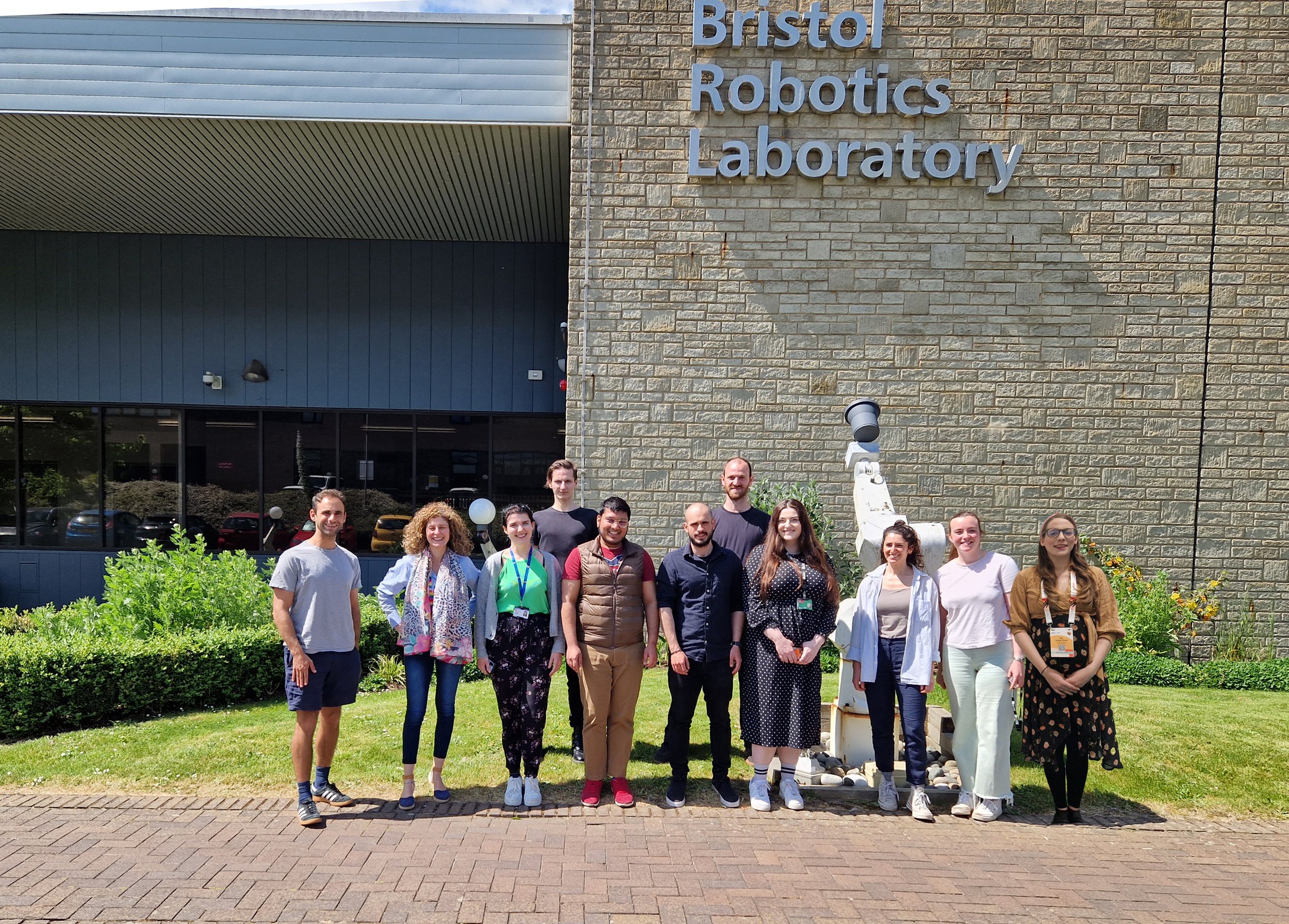May 2024
June 2023
ICRA, May 2023
May 2025
March 2021
Group Leader
Antonia Tzemanaki
Antonia Tzemanaki is Senior Lecturer (US equiv. Associate Professor) in Robotics at the School of Engineering Mathematics and Technology at the University of Bristol and is member of the Bristol Robotics Laboratory. Her research includes human and robot hands, hand exoskeletons, robot kinematics, haptics and wearable robotics, especially with applications in surgery, preventative medicine, rehabilitation, physiotherapy and dexterous tele-operation, as well as extreme environments such as nuclear and space industry.
Postdoctoral Researchers
Joe Louca
Current project Google Scholar
Joe Louca is a Senior Research Associate in Robotics at the University of Bristol specialising in trustworthy telemanipulation for high-risk environments, such as surgical and space applications. His research combines robot perception (haptics and computer vision), realistic simulations, and user-centric design to improve how people interact with robots. He has collaborated with the European Space Agency, Thales Alenia Space (UK), and clinical partners to help translate research into practical solutions for the real world.
George Jenkinson
Current project Google Scholar
Doctoral Researchers
Primary supervisor
Kat Styles
co-supervisor: Prof. Tom Scott
I took an undergraduate masters in Astronomy, Space science and Astrophysics and during my final year I worked on investigating the robustness of spacecraft shielding facing hyper-velocity impacts in orbit. This inspired me to switch from science to engineering. Since I wanted to continue to pursue my interest in all things space, I joined Airbus as a spacecraft thermal engineer on the thermal team for the ExoMars rover. I really enjoyed the project and once it was completed, I chose to continue learning about and working with robotic technology and joined the FARSCOPE CDT.
Audric Tamby
co-supervisors: Dr Martin Pearson, Mr Kumar Abhinav
After graduating from Cardiff University with an MEng in Medical Engineering with First Class Honours, I wanted to be involved in the design process of medical devices, from prototyping to commercialisation. This was the key motivation in joining the FARSCOPE programme.
My research will focus on the design of a robot-assisted skull-base neurosurgery system that is not only ergonomic and cost-effective, but also safe for both surgeon and patient.
Jayden Hewlett
co-supervisor: Prof. Sabine Hauert
I am a CDT Digital Health and Care PhD student with a bachelor's degree in Physics, and a masters in Nanoscience and Functional Nanomaterials. I'm interested in the intersection between Physics and Health, which robotics lends itself well to, as well as being a new challenge for me. My PhD research will focus on utilising swarm intelligence and haptic feedback to design small, on-body robots that can work together to characterise tissues and detect anomalies. Users will work alongside the robots, helping them complete their tasks by applying the necessary palpation forces and promoting interactivity with the assessment process.
Secondary supervisor
Yael Zekaria
co-supervisor: Prof. Jonathan Rossiter
I am a FARSCOPE PhD student exploring the design and fabrication of a high-fidelity robotic pelvic floor phantom for the purposes of medical training, patient education and medical device testing. My research interests include bio-inspiration, health tech, user-focused design and all things that question the conventional view of robotics.
Miranda Lowther
co-supervisor: Prof. Helmut Hauser
My PhD research focuses on soft robotics, anthropomorphism, biomimicry and upper limb prosthetics, and my initial project will look at the morphology of soft prosthetic sockets for upper limb design.
Edith-Clare Hall
co-supervisor: Prof. Jonathan Rossiter
I am a PhD candidate working to apply and develop soft robotics to novel upper limb orthoses to better meet the needs of people living with the neurodegenerative conditions, such as motor neuron disease. My research interests are compassionate human-centred participatory design, biologically inspired soft robotics, musculoskeletal modelling, computational fluid dynamics, and neural networks for machine learning. My research is complimented by diverse engineering industrial experience in aerospace, high value manufacturing, and human-centred design.
Jasmine Zhao
co-supervisor: Dr Andrew Conn
Graduating with a degree in Electronic and Electronic Engineering, I developed a keen interest in the intersection of technology and healthcare. My focus is on human-robot interaction and palpation for surgery and diagnosis. Passionate about advancing medical technology, I am dedicated to exploring how robotics can transform the surgical landscape.
Ugnius Baharunas
co-supervisors: Dr Ben Ward-Cherrier (1st)
UG and PGT students
MSc Biorobotics
tba in February 2026
MSc Robotics
tba in February 2026













